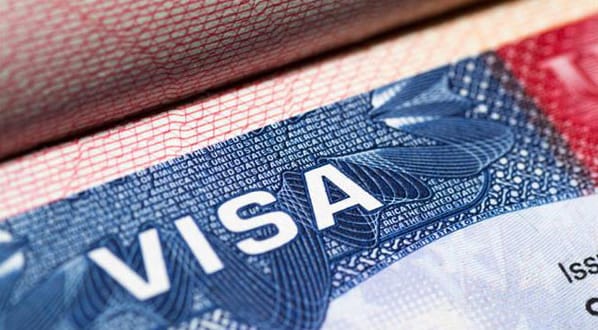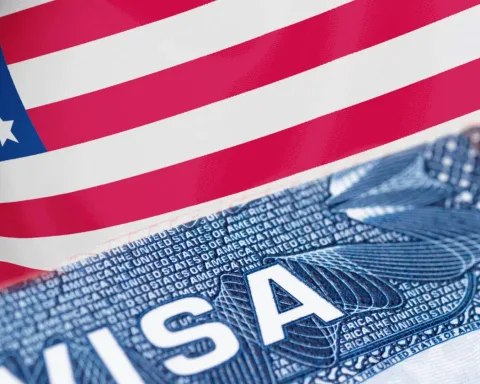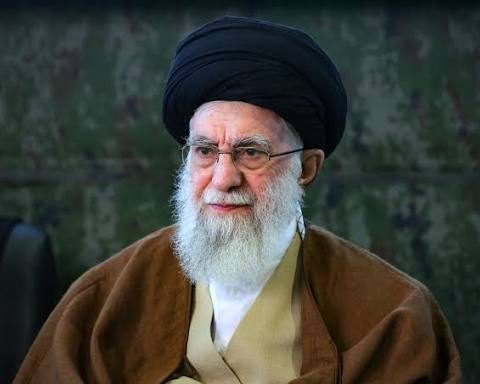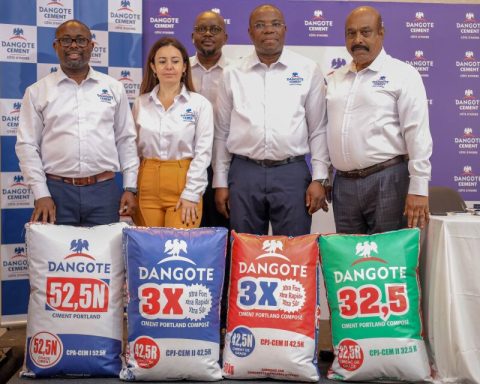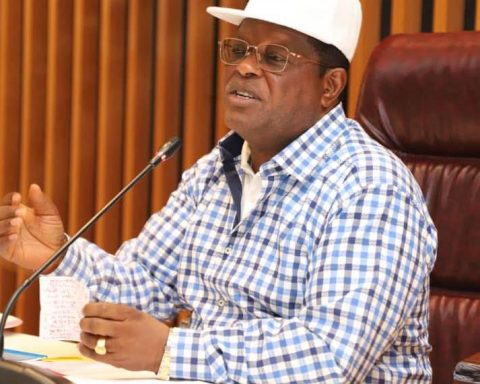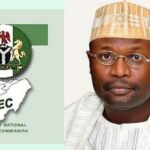The Nigerian Government has reacted strongly to the recent decision by the United States to impose tighter visa restrictions on Nigerian citizens, describing the move as “disproportionate” and urging a reconsideration in the spirit of mutual respect and cooperation.
On Tuesday, 8 July, the United States Department of State announced an immediate policy change reducing the validity of most non-immigrant visas issued to Nigerians from multiple years to just three months, and limiting them to single entry. The affected visa categories include the B1/B2 (business and tourism), F (student), and J (exchange visitor) classes.
Join our WhatsApp ChannelIn a statement released by the Ministry of Foreign Affairs, Nigeria expressed concern over the new restrictions, emphasizing that they could undermine the long-standing diplomatic, economic, and cultural ties between both nations. The government said the decision does not reflect the principles of equity and reciprocity upon which bilateral relations should be built.
“The Federal Government views this policy as disproportionate and inconsistent with the mutual respect and cooperation that has traditionally defined Nigeria–U.S. relations,” said Kimiebi Ebienfa, spokesperson for the ministry.
The new visa regime marks a significant shift from previous U.S. policy, which allowed Nigerian citizens to receive multiple-entry visas valid for up to five years. Under the revised rules, Nigerians will now be required to reapply and undergo consular processing for each visit to the United States, an administrative and financial burden that critics say may deter travel for education, business, and family reasons.
READ ALSO: U.S. Restricts Nigerian Non-Immigrant Visas To Single Entry, Three-month Validity
While the U.S. government described the measure as a “reciprocity adjustment,” Nigerian authorities argue that the country continues to offer American citizens more generous visa conditions, including multi-year and multiple-entry options.
Ebienfa noted that thousands of Nigerians travel to the United States annually for academic pursuits, professional engagements, medical care, and to maintain family and cultural ties, adding that the new limitations will significantly affect these interactions.
“The Federal Government calls on the United States to reconsider this decision and to engage in constructive dialogue that will lead to a mutually beneficial outcome,” he stated.
READ ALSO: UAE Bans Transit Visas For Nigerian Travellers, Imposes Tougher Entry Conditions
Diplomatic sources confirmed that efforts are already underway to address the issue through official channels. Nigeria said it remains committed to a strong and strategic partnership with the United States and hopes for a resolution that upholds the dignity and interests of both countries’ citizens.
The development comes amid broader concerns that restrictive visa policies could strain U.S. engagement in Africa, particularly at a time when other global powers are vying for influence across the continent.
As discussions continue, affected Nigerians are being advised to plan travel well in advance, review visa eligibility requirements closely, and seek guidance from relevant authorities or legal experts when necessary.
Amanze Chinonye is a Staff Correspondent at Prime Business Africa, a rising star in the literary world, weaving captivating stories that transport readers to the vibrant landscapes of Nigeria and the rest of Africa. With a unique voice that blends with the newspaper's tradition and style, Chinonye's writing is a masterful exploration of the human condition, delving into themes of identity, culture, and social justice. Through her words, Chinonye paints vivid portraits of everyday African life, from the bustling markets of Nigeria's Lagos to the quiet villages of South Africa's countryside . With a keen eye for detail and a deep understanding of the complexities of Nigerian society, Chinonye's writing is both a testament to the country's rich cultural heritage and a powerful call to action for a brighter future. As a writer, Chinonye is a true storyteller, using her dexterity to educate, inspire, and uplift readers around the world.
- Amanze Chinonye
- Amanze Chinonye
- Amanze Chinonye
- Amanze Chinonye
- Amanze Chinonye
- Amanze Chinonye
- Amanze Chinonye
- Amanze Chinonye
- Amanze Chinonye
- Amanze Chinonye
- Amanze Chinonye
- Amanze Chinonye
- Amanze Chinonye
- Amanze Chinonye
- Amanze Chinonye
- Amanze Chinonye
- Amanze Chinonye
- Amanze Chinonye
- Amanze Chinonye
- Amanze Chinonye
- Amanze Chinonye
- Amanze Chinonye
- Amanze Chinonye
- Amanze Chinonye
- Amanze Chinonye
- Amanze Chinonye
- Amanze Chinonye
- Amanze Chinonye
- Amanze Chinonye
- Amanze Chinonye
- Amanze Chinonye
- Amanze Chinonye
- Amanze Chinonye
- Amanze Chinonye
- Amanze Chinonye
- Amanze Chinonye
- Amanze Chinonye
- Amanze Chinonye
- Amanze Chinonye
- Amanze Chinonye
- Amanze Chinonye
- Amanze Chinonye
- Amanze Chinonye
- Amanze Chinonye
- Amanze Chinonye
- Amanze Chinonye
- Amanze Chinonye
- Amanze Chinonye
- Amanze Chinonye
- Amanze Chinonye
- Amanze Chinonye
- Amanze Chinonye
- Amanze Chinonye
- Amanze Chinonye
- Amanze Chinonye
- Amanze Chinonye
- Amanze Chinonye
- Amanze Chinonye
- Amanze Chinonye
- Amanze Chinonye
- Amanze Chinonye
- Amanze Chinonye
- Amanze Chinonye
- Amanze Chinonye
- Amanze Chinonye
- Amanze Chinonye
- Amanze Chinonye
- Amanze Chinonye
- Amanze Chinonye
- Amanze Chinonye
- Amanze Chinonye
- Amanze Chinonye
- Amanze Chinonye
- Amanze Chinonye
- Amanze Chinonye
- Amanze Chinonye
- Amanze Chinonye
- Amanze Chinonye
- Amanze Chinonye
- Amanze Chinonye
- Amanze Chinonye
- Amanze Chinonye
- Amanze Chinonye
- Amanze Chinonye
- Amanze Chinonye
- Amanze Chinonye
- Amanze Chinonye
- Amanze Chinonye
- Amanze Chinonye
- Amanze Chinonye
- Amanze Chinonye
- Amanze Chinonye
- Amanze Chinonye
- Amanze Chinonye
- Amanze Chinonye
- Amanze Chinonye
- Amanze Chinonye
- Amanze Chinonye
- Amanze Chinonye
- Amanze Chinonye
- Amanze Chinonye
- Amanze Chinonye
- Amanze Chinonye
- Amanze Chinonye
- Amanze Chinonye
- Amanze Chinonye
- Amanze Chinonye
- Amanze Chinonye
- Amanze Chinonye
- Amanze Chinonye
- Amanze Chinonye
- Amanze Chinonye
- Amanze Chinonye
- Amanze Chinonye
- Amanze Chinonye
- Amanze Chinonye
- Amanze Chinonye
- Amanze Chinonye
- Amanze Chinonye
- Amanze Chinonye
- Amanze Chinonye
- Amanze Chinonye
- Amanze Chinonye
- Amanze Chinonye
- Amanze Chinonye
- Amanze Chinonye
- Amanze Chinonye
- Amanze Chinonye
- Amanze Chinonye
- Amanze Chinonye
- Amanze Chinonye
- Amanze Chinonye
- Amanze Chinonye
- Amanze Chinonye
- Amanze Chinonye
- Amanze Chinonye
- Amanze Chinonye
- Amanze Chinonye
- Amanze Chinonye
- Amanze Chinonye


